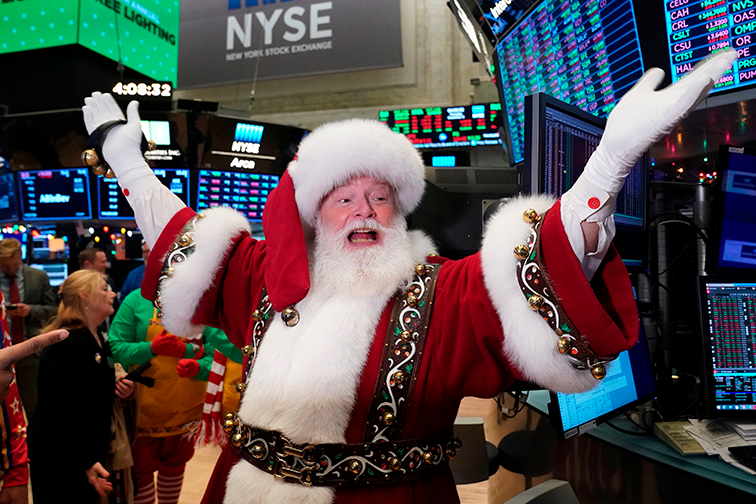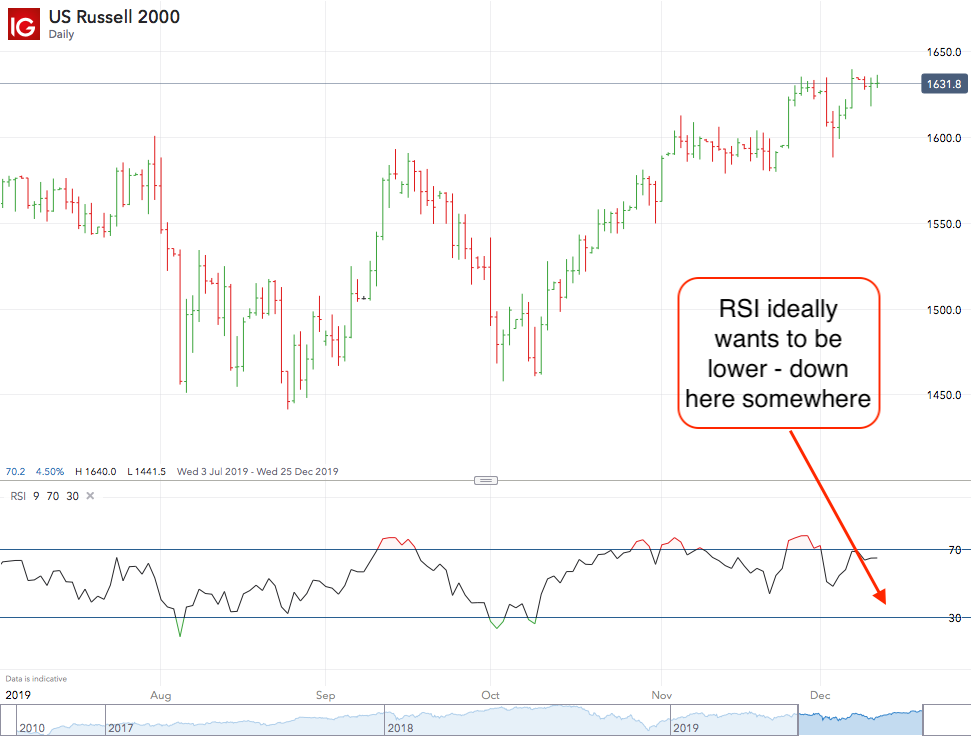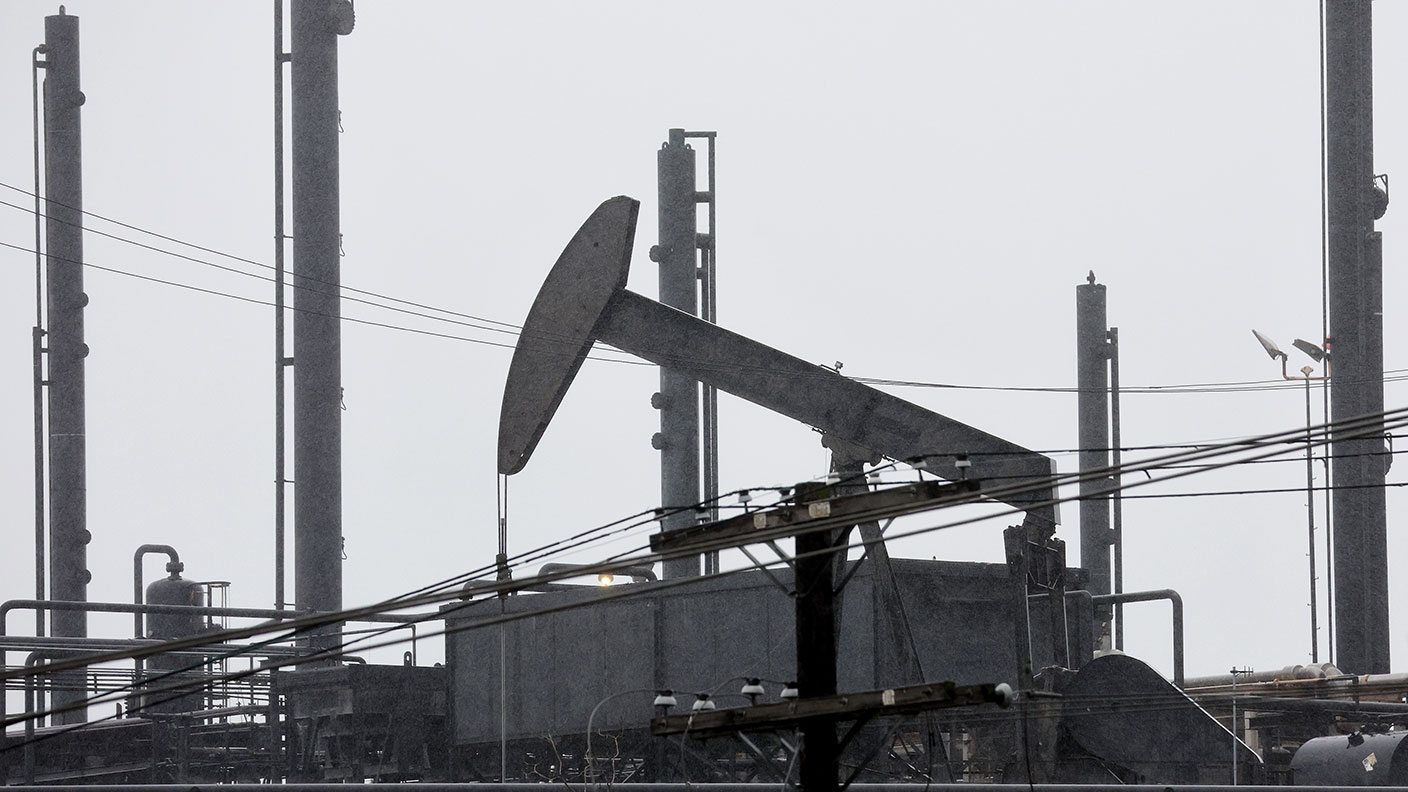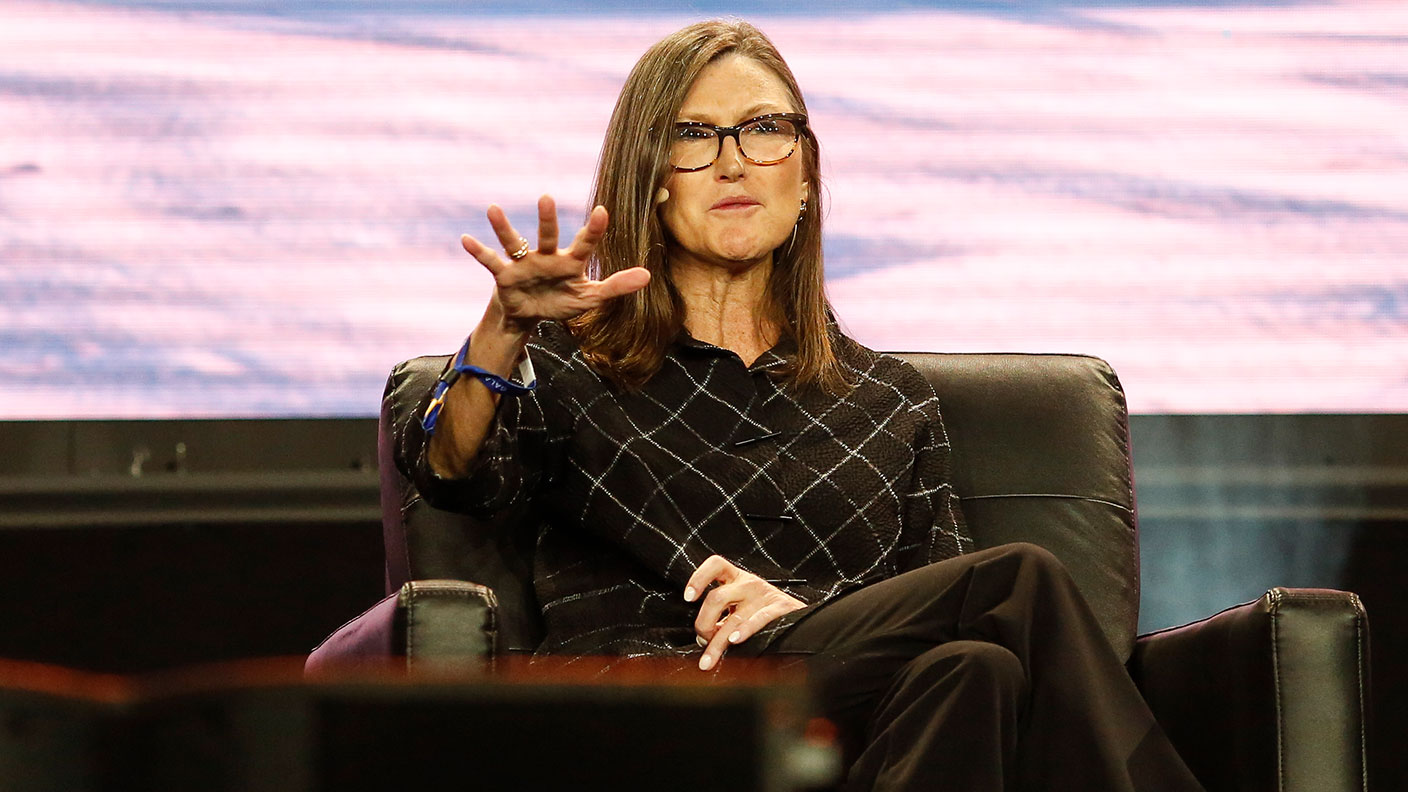Why traders should believe in Santa Claus
If it’s Christmas in the markets, it’s time for the Santa Claus rally. Dominic Frisby explains what it is, how it works, and how to play it.

Get the latest financial news, insights and expert analysis from our award-winning MoneyWeek team, to help you understand what really matters when it comes to your finances.
You are now subscribed
Your newsletter sign-up was successful
Want to add more newsletters?

Twice daily
MoneyWeek
Get the latest financial news, insights and expert analysis from our award-winning MoneyWeek team, to help you understand what really matters when it comes to your finances.

Four times a week
Look After My Bills
Sign up to our free money-saving newsletter, filled with the latest news and expert advice to help you find the best tips and deals for managing your bills. Start saving today!

It's the most wonderful time of the year if you're a speculator, that is.
Not because it's Christmas. But because Christmas means it's time for the Santa Claus rally.
So what is the Santa Claus rally exactly? Does it work? And if so, how do we play it?
MoneyWeek
Subscribe to MoneyWeek today and get your first six magazine issues absolutely FREE

Sign up to Money Morning
Don't miss the latest investment and personal finances news, market analysis, plus money-saving tips with our free twice-daily newsletter
Don't miss the latest investment and personal finances news, market analysis, plus money-saving tips with our free twice-daily newsletter
What is the Santa Claus rally (and do you really need me to explain it?)
Sometimes you find yourself explaining something that is self-explanatory. This is perhaps one of those times. The Santa Claus rally is a rally in stockmarkets, especially in the US, that occurs over Christmas over the last weeks of December and into the first fortnight of January.
There are numerous explanations as to why it exists (and we will come to the question of whether it actually does exist in a moment).
There is of course the general feeling of good will and optimism that comes with Christmas (general elections notwithstanding). Many bonuses get paid at this time of year, and these are duly invested, pushing prices higher.
Some purists argue that the Santa Claus rally only begins in the last week of December, when sophisticated institutional investors have begun the winter break and the market is left in the hands of naive retail investors who tend to be much more bullish.
Are retail investors more bullish than institutional? Are they more naive? In some cases, yes, I suppose, but not always. In any case, that is the argument.
Tax considerations may also be a factor, as are people settling their books and getting positioned before the winter break.
Others buying in anticipation of the "January effect" when stocks are also expected to go higher may also be a factor. But if people are buying in late December in anticipation of a rise in January, that will surely lead to people buying in early December in anticipation of a rise in late December. And before you know it, the Santa Claus rally will be starting in November or October, and before you know it will be a summer phenomenon.
That said, there's no official day that the Santa Claus rally begins. It's much easier of course to identify Santa Claus rallies after the event than it is in real time, but the idea is to be looking for dips, buying them and then selling early in the new year.
The problem with this, of course, in that pretty much the entire investment world is looking for big dips in the lead up to Christmas, and so you often don't get them. Or, as I say, they come earlier.
An early Santa Claus rally certainly seems to be the case this year. After a rocky first couple of days, we had a rip-roaring rally and markets currently seem to be consolidating and digesting those.
How to play the Santa Claus rally
Roughly two thirds of Decembers since 1969 have netted positive returns. But if we take a much more purist line, and consider that the Santa Claus rally only starts in the last week of December, with the "sell" coming in the first two days of January after new year, the Stock Traders' Almanac has it that: "Since 1969, the Santa Claus rally has yielded positive returns in 34 of the past 45 holiday seasons The average cumulative return over these days is 1.4%, and returns are positive in each of the seven days of the rally, on average."
The normal way to play the Santa Claus rally is simply to buy the S&P 500. The Dow Jones and the Nasdaq will probably work as well.
However, perhaps a more appealing proposition is to go for the small-cap stocks, as these have a tendency to outperform. Research by Canadian technical analyst Ross Clark shows that in the last 40 years, buying the Russell 2000 Index (effectively the small-cap index) on 15 December and selling 11 trading days later, has been profitable 35 times. That's an extraordinarily good hit rate.
15 December is this Sunday, so you could extend the trade a little on either side to this coming Friday or Monday.
Yet there is an even better option, says Clark, which is to refine the trade slightly. Wait for an entry point when the momentum indicator RSI is below 40, and the number of trades over the last 40 years is reduced to 23 but only three of them are losing years.
Unfortunately, that doesn't look like it will work for us this year, unless we get a sharp sell off this week. As you can see in the chart below, RSI is currently just below 70 (it's actually at 63), so it would need something pretty brutal to take us down to 40 (indicated by the arrow).

But 35 out of 40 is still pretty good (indeed, not much different to 20 out of 23), so buying the small caps for a short-term bet looks reasonable.
This can be done via spreadbets, futures and options (all of which are only for those who know what they're doing). The US-listed ETF, IWM, provides another, lower-risk option.
But the bottom line, however, is that US stocks are in a bull market, whether small cap or large cap. I have been beating this particular drum for a long time. Santa Claus rally or not, in a bull market you want to be long.
Dominic's new book Daylight Robbery: How Tax Shaped Our Past And Will Change Our Future, published by Penguin Business, is available at Amazon and all good bookshops. Audiobook at Audible.co.uk. Signed copies are available at dominicfrisby.com
Get the latest financial news, insights and expert analysis from our award-winning MoneyWeek team, to help you understand what really matters when it comes to your finances.

-
 Should you buy an active ETF?
Should you buy an active ETF?ETFs are often mischaracterised as passive products, but they can be a convenient way to add active management to your portfolio
-
 Power up your pension before 5 April – easy ways to save before the tax year end
Power up your pension before 5 April – easy ways to save before the tax year endWith the end of the tax year looming, pension savers currently have a window to review and maximise what’s going into their retirement funds – we look at how
-
 Are UK house prices set to fall? It’s not so simple
Are UK house prices set to fall? It’s not so simpleAnalysis Figures suggest UK house prices are starting to slide, but we shouldn’t take these numbers at face value, explains Rupert Hargreaves.
-
 Tesco looks well-placed to ride out the cost of living crisis – investors take note
Tesco looks well-placed to ride out the cost of living crisis – investors take noteAnalysis Surging inflation is bad news for retailers. But supermarket giant Tesco looks better placed to cope than most, says Rupert Hargreaves.
-
 It may not look like it, but the UK housing market is cooling off
It may not look like it, but the UK housing market is cooling offAnalysis Recent house price statistics show UK house prices rising. But John Stepek explains why the market is in fact slowing down and what this means for you.
-
 Think the oil price is high now? You ain’t seen nothing yet
Think the oil price is high now? You ain’t seen nothing yetAnalysis The oil price has been on a tear in recent months. Dominic Frisby explains why oil in fact is still very cheap relative to other assets.
-
 What can markets tell us about the economy and geopolitics?
What can markets tell us about the economy and geopolitics?Sponsored Markets have remained resilient despite Russia's war with Ukraine. Max King rounds up how reliable the stockmarket is in predicting economic outlooks.
-
 The tech bubble has burst – but I still want a Peloton
The tech bubble has burst – but I still want a PelotonAnalysis Peloton was one of the big winners from the Covid tech boom. But it's fallen over 90% as the tech stock bubble bursts and and everything else falls in tandem. Here, Dominic Frisby explains where to hide as markets crash.
-
 The market is adjusting to a new “short dreams, long reality” world
The market is adjusting to a new “short dreams, long reality” worldAnalysis As interest rates rise, things are starting to change, says John Stepek. Reality is biting back. Gone are the fanciful ideas built on hope – a business now needs a solid foundation.
-
 Are UK house prices heading for a fall?
Are UK house prices heading for a fall?Analysis UK house-price growth is slowing as interest rates rise. But interest rates aren’t all that matters for house prices, says John Stepek.